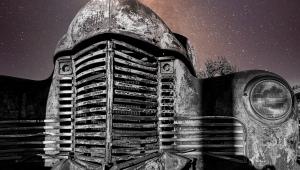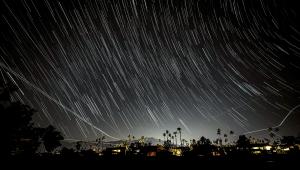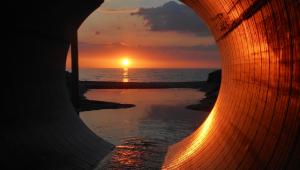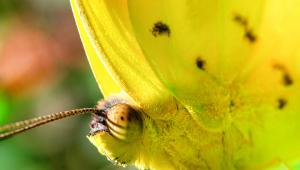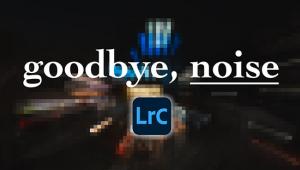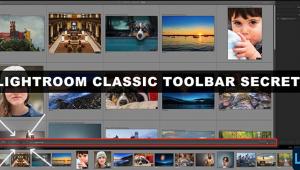Start It Up; For Steve Gottlieb, Creating His Own Workshop Was A Learning Experience Page 2
Surprises And Discoveries
Now, with a year of operation in the books, Steve says things are going well
and the workshop is growing. Some things worked out as he planned and hoped,
others were surprises. "About 15 percent of the workshop's students
fly in," Steve says, "which was just the thing I wanted them to
be able to avoid, but hey, if they're willing, so am I. We're midway
between airports in Philadelphia and Baltimore/Washington, and we've had
people fly in from Florida, Arkansas, and Chicago." Another surprise:
"We needed to add a course in basics. I found out people really need it.
It's a four-hour review of all the buttons on the camera, and it's
very successful."
 |
|
|
Horizon's most popular class is "Creative Vision," and it
attracts both newcomers and more experienced photographers. "Many people
realize that they're somehow stuck in a visual rut," Steve says.
"They're repeating themselves too much, they're not seeing
things in a different way. They're looking to be inspired and challenged."
The Creative Vision course, which Steve teaches, aims to do just that. "They
look at my work and see no flashy techniques. They realize they could take the
pictures I take if they could just see a little bit better. The improvement
they need is not in technique, it's really in the vision. They don't
see anything in my work that they can't do--they just need to see
it and know how to get it."
Steve discovered that digital changed not only photography, but the pace at
which it can be taught and demonstrated. "The fact that we have digital
photography and can get instant feedback means that the number of points you
can cover in a relatively short time is greater than ever. That didn't
enter my thinking at the start, but I realized it right away. We can cover in
a few days what would take about a week in other workshops."
 |
|
|
What's proving to be the biggest teaching boon is not the digital camera, but the television monitor. "When I teach a course in location lighting or architectural interiors, we take the monitor with us. A student will take a shot of an interior and it goes from the camera right to the TV monitor. The class can evaluate and critique the photo, and the student can make corrections--like moving or adding lights. Seeing the immediate impact of a lighting change is profound. The monitor is a powerful teaching tool."
The Learning Experience
In fact, the workshop itself is a powerful teaching tool. But why? What is the
benefit of the workshop experience? "I've thought about that a lot,
of course," Steve says. "I don't think people learn from manuals
unless they're looking for something specific about camera operation.
And they don't learn much by looking at the work of top professionals.
They might be inspired, but in terms of helping, well, it's like an average
tennis player watching Pete Sampras. It's all happening too fast and happening
to someone else. But at a workshop it's happening to them, and slowly.
People learn by being in the field and doing the work, and by having the instructor
come around and look through the lens and peek over their shoulder and give
them direct input. Why are you standing here? Why not down lower? Why not a
wide angle lens? That's how you learn that there are different ways to
see things."
The other benefit of the workshop learning experience is the photo evaluation.
"We don't critique a lot of photos, and we don't have applause
at the end of everyone's presentation. We get to the real nitty-gritty
of how they could make the picture better. A lot of people feel the highlight
of the workshop is the evaluation and critique."
 |
|
|
Steve feels that the students are often limited because they depend too much
on the automatic functions of the equipment. "It's amazing how little
technique most people have mastered," Steve says. "Auto everything
has atrophied people's creative muscles. They're so hung up on on-camera
flash, for example, that when you say, no, it's doesn't work for
this reason, they're stymied. They don't know how to get the flash
off the camera and over to where they need it. They may be getting pretty good
pictures with on-camera flash and Program mode and autofocus, but they're
here to learn how to get pictures that are better than pretty good."
What it comes down to is learning to see in different ways--and then learning
how to capture what you see. "Most of the students are looking for that
beautiful situation, that Kodak moment," Steve says, "and what I
tell them is to find a subject that's interesting and then make it vastly
more interesting. You create the moment."
Note: Information about Horizon Workshops' courses and instructors can be found at: www.horizonworkshops.com.
- Log in or register to post comments
